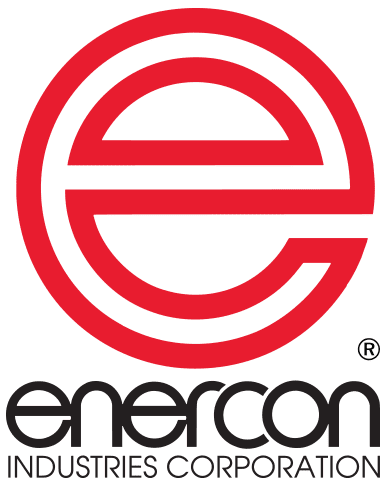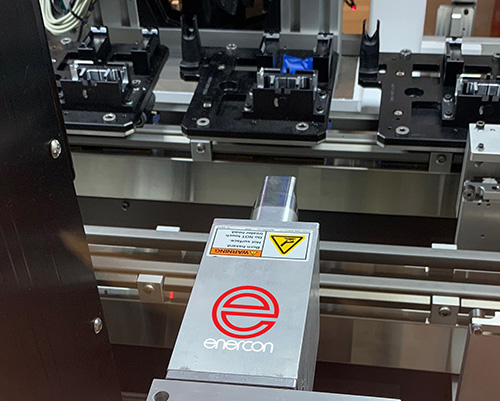5 Mistakes to Avoid When Plasma or Flame Treating Surfaces
When properly implemented, plasma and flame surface treating can improve bonding with adhesives, coatings and inks. However, there are a number of common mistakes made when evaluating and integrating surface treaters that can easily be avoided. In this new webinar, Enercon shares insights on mistakes that can undermine your success: Fill out the form to…
Read MoreNew eBook Offers Technical Insights on using Atmospheric Plasma
Enercon is excited to announce the release of a new eBook: Getting Started with Plasma Surface Treatment. This free eBook provides engineers and manufacturers with a comprehensive guide on how plasma surface treating technology is used to improve bonding for a wide variety of industrial applications. This interactive resource will equip readers with foundational knowledge…
Read MoreNew Plasma & Flame Treater Head Designs Improve Treatment Coverage, Integration and Efficiency
Manufacturers look to Enercon to solve adhesive, ink & coating challenges. Many of these applications require a unique or custom engineered solution. This is where our plasma & flame treating experts work their magic. In this exclusive webinar, we share our most recent groundbreaking surface treater designs that enable plasma & flame to overcome integration…
Read MoreEnercon Releases 2nd Generation of the Blown-ion™ 500 Plasma Surface Treater with an Expanded Operating Window
Enercon’s original Blown-ion™ 500 plasma treater broke new barriers with its ability to provide wide, high and uniform treatment levels at process speeds never before possible with in-line plasma technology. The innovation continues as Enercon releases its second generation of this remarkable technology. “Maintaining a consistent plasma simultaneously over six separate plasma discharge ports requires…
Read MoreNew Blown-ion™ 500 Plasma Surface Treating Technology Enables Rockwell Automation’s Switch from Print-and-Apply Labels to In-Line Digital Printing
When Rockwell Automation moved its contactor and relay production back to Milwaukee, Wisconsin, it had to develop an entirely new process for the changing volumes and available space. The new highly automated assembly line would also be a showcase of Rockwell’s automation capabilities, featuring Rockwell drives, motors, Independent Cart Technology (ICT), PLC’s, HMI’s, sensors, and…
Read MoreHow and why plasma and flame surface treating improve surface adhesion.
Common adhesion impediments found on surfaces. Non-porous and hydrophobic surfaces have low surface energy with few available bonding sites due to low levels of charged ions on the surface. Additionally, any type of surface contamination affects adhesion negatively. This contamination can include material additives & release agents which can migrate to the surface. Clean, Etch…
Read MoreGetting Started with Flame Plasma
What’s in the eBook? Learn how flame plasma is helping users improve product quality, and increase production speeds. See what Enercon customers are saying “We’ve integrated Enercon flame treaters and we really enjoy working with Enercon because of their depth of knowledge in surface treating.”Jerry Schmit, Sr Applications Engineer, Midwest Engineering Solutions
Read MoreAtmospheric Plasma and Flame Surface Treatment for Medical Applications
Get insight on how medical device manufacturers are using atmospheric plasma to eliminate adhesion challenges. What’s in the eBook? Learn how atmospheric plasma is helping users improve product quality, and increase production speeds. See what Enercon customers are saying “For medical printing applications, it’s imperative to follow the defined protocols. Enercon’s experience with medical device…
Read MoreAn Overview of Surface Treatment for Three-Dimensional Objects
If you’ve attempted to print, label, or otherwise decorate a three-dimensional (3-D) product, you’ve probably been frustrated by an ink or adhesive that refused to adhere to the part’s surface. You may have tried different types of ink or adhesive formulations to get the job done, perhaps even used chemical primers or batch-treating processes. Still,…
Read MoreWhat Plasma Actually Does to a Surface to Improve Adhesion
Air plasma surface treating is an emerging green technology for leading manufacturers tasked with assembling and decorating plastics, composites, glass and metals. It is a powerful, yet relatively inexpensive technology that is used by both Fortune 100 companies and small operations to improve bond strength, product quality and throughput. You can see the effects of…
Read More










